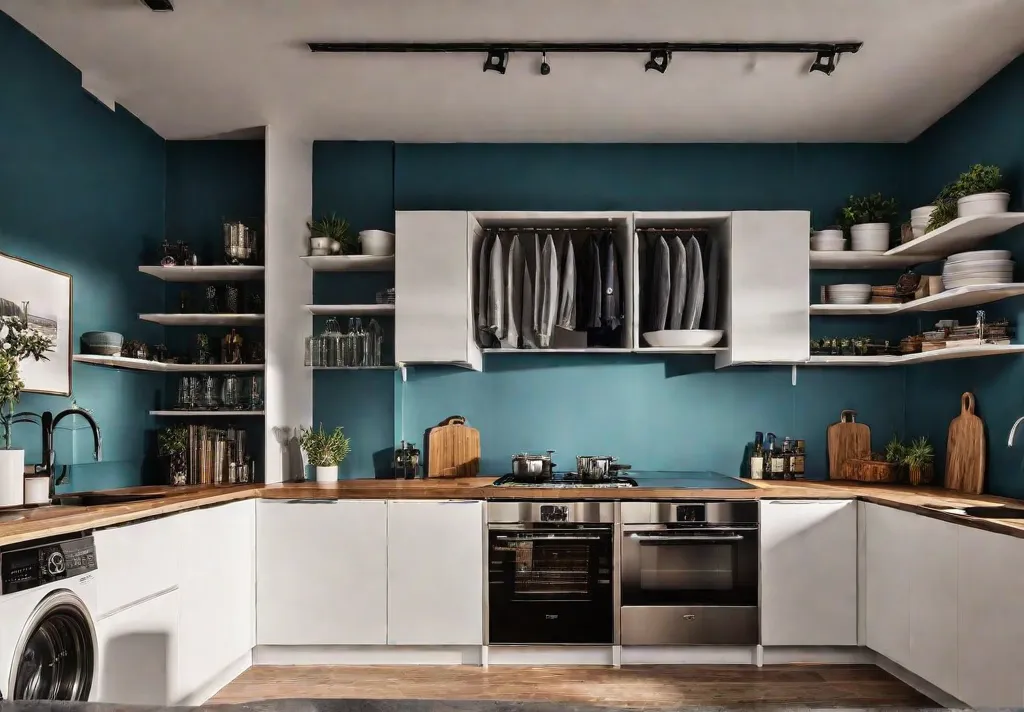Have you ever stood in your kitchen, staring at the jumble of pots, pans, and random gadgets, feeling overwhelmed and frustrated? You’re not alone. The kitchen is often the heart of the home, but it can quickly become a cluttered and disorganized mess if not properly maintained. As an interior designer and lifestyle blogger, I’ve seen my fair share of chaotic kitchens, and I’m here to tell you there’s a better way.
This comprehensive guide will explore easy and effective solutions to transform your kitchen into a well-organized, efficient, and visually appealing space. Whether you’re a busy parent, a passionate home cook, or simply someone who wants to bring a sense of calm to their culinary domain, these strategies will help you streamline your kitchen and make the most of your cooking area.
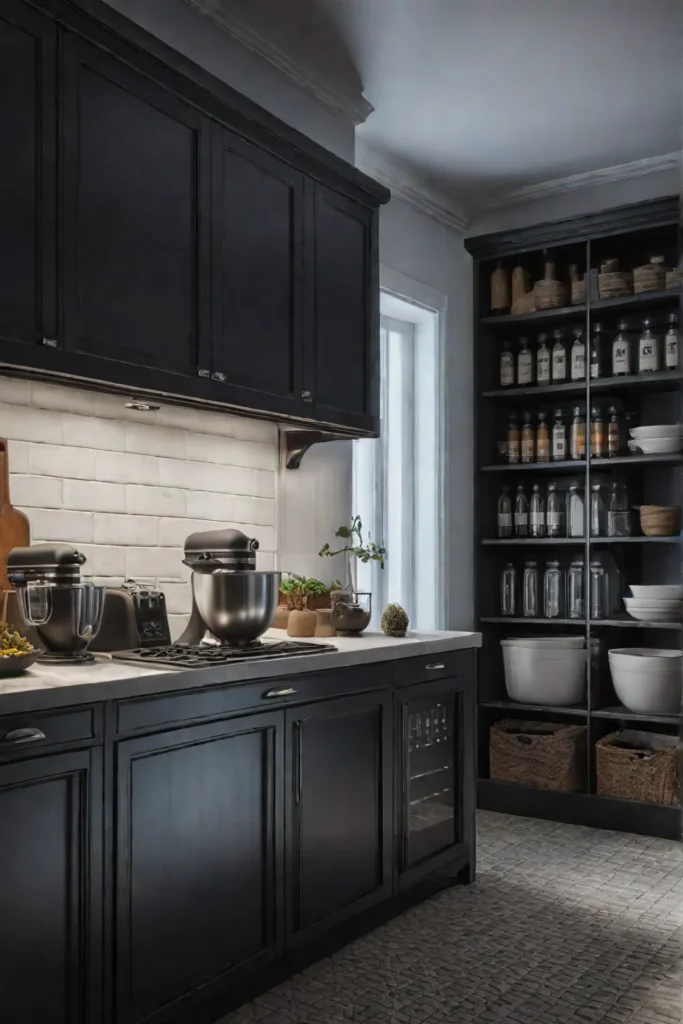
Decluttering and Purging
Decluttering and purging are the essential first steps in achieving an organized kitchen. It’s time to examine the items in your kitchen and decide what’s truly necessary and what’s just taking up valuable space.
Start by separating your kitchen items into three categories: keep, donate, and discard. Use the “one-year rule” to determine if an item is worth saving – if you haven’t used it in the past year, it’s probably time to let it go. And don’t be afraid to create a “maybe” box for those items you’re unsure about. You can revisit the box in a few months and make a more informed decision.
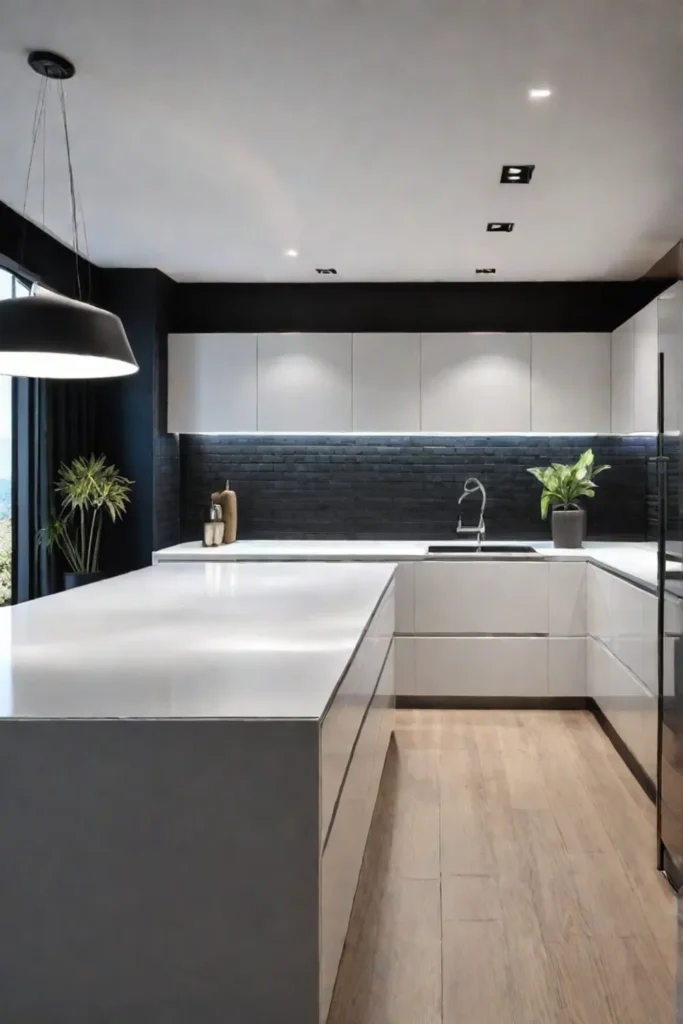
Remember, the average American home contains around 300,000 items, many of which are in the kitchen. Decluttering can increase productivity and reduce stress levels, so it’s worth the effort. Approach the process systematically, working in sections rather than tackling the entire kitchen simultaneously. Use storage containers to group similar items together, making identifying and removing unnecessary clutter easier.
Maximizing Storage Solutions
With the clutter cleared, it’s time to focus on efficient storage solutions. Utilizing vertical space is key, so consider adding shelves, racks, and cabinets to maximize your storage potential. Open shelves can display decorative items or store frequently used items, while closed cabinets are perfect for tucking away less-used items.
Organizing drawers and cabinets is also essential. Use drawer dividers to keep utensils and small items neatly in place, and consider installing pull-out shelves or lazy susans to make it easier to access items stored in the back.
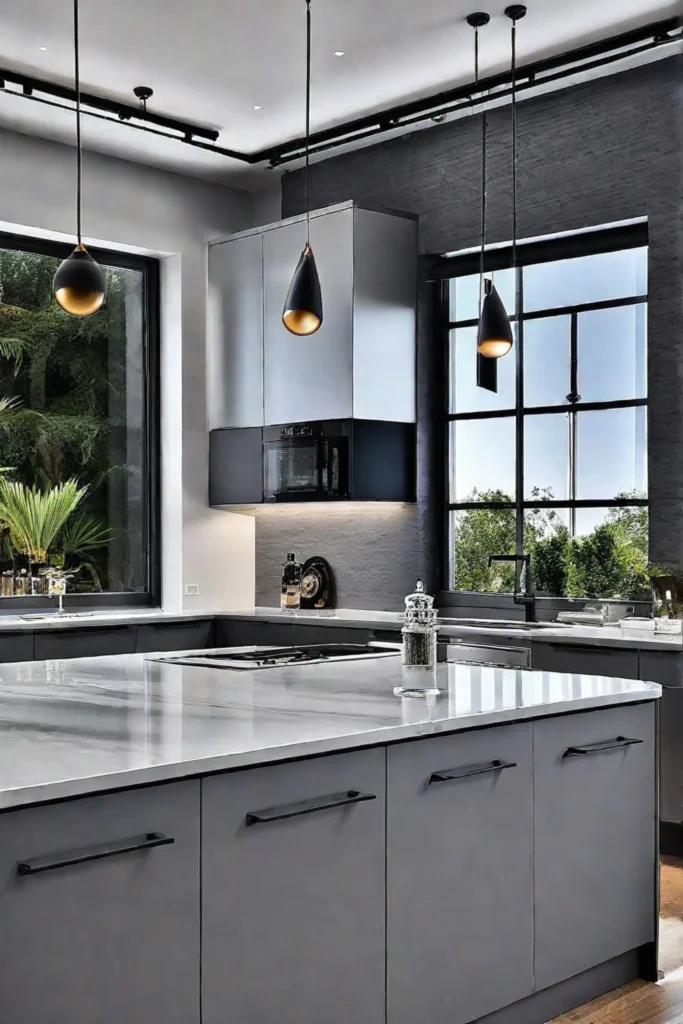
If you have a small kitchen, don’t worry—there are plenty of smart storage solutions to help you make the most of your space. Multi-functional furniture, wall-mounted storage, and hanging organizers can all create the illusion of a more spacious kitchen.
Streamlining Workflow and Efficiency
An organized kitchen isn’t just about appearances; it’s also about function. By grouping similar items and implementing a logical cooking and meal preparation flow, you can save time and effort in the kitchen.
Designate specific areas for cooking tools, baking supplies, and serving dishes, and use organizational tools like magnetic strips and hanging pot racks to keep frequently used items within reach. This makes your kitchen look neat and streamlines your workflow, allowing you to move more efficiently from task to task.
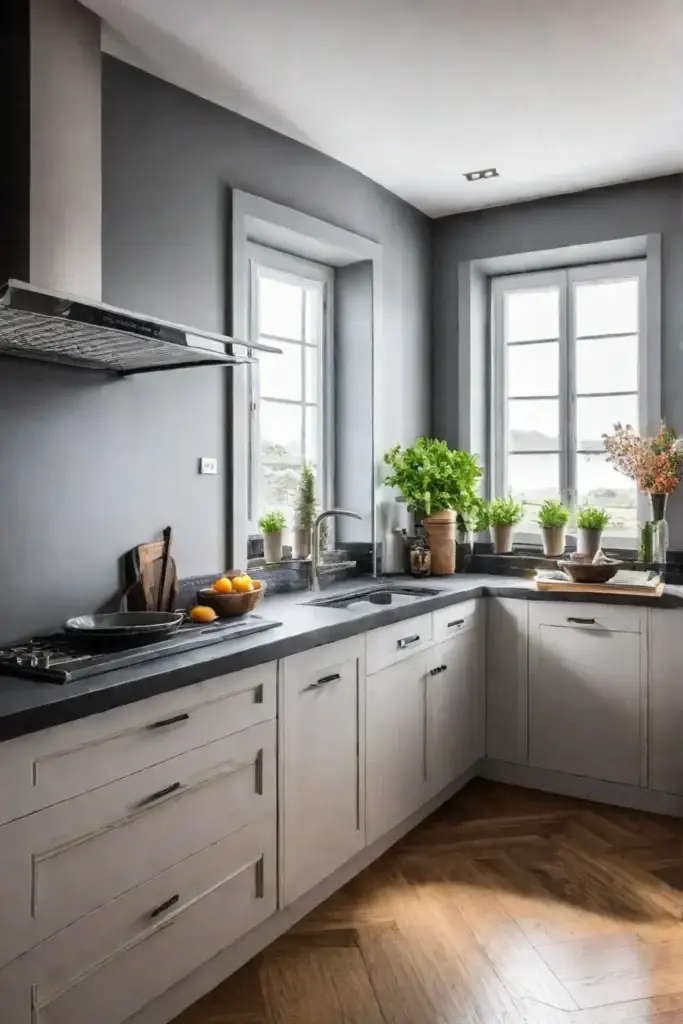
The average person spends around 2 hours daily in the kitchen, so optimizing your workflow can make a significant difference. Efficient kitchen organization can save up to 30 minutes daily in meal preparation time, freeing you up to focus on the fun part – cooking and enjoying your creations.
Maintaining Order and Preventing Clutter
Maintaining an organized kitchen is an ongoing process but worth the effort. Develop daily and weekly routines for tidying and cleaning, and establish systems for managing incoming items and paperwork to prevent clutter from creeping back in.
Implement a “one-in, one-out” rule for new kitchen items, and designate a specific area for incoming mail, bills, and other paperwork. Encourage family members to participate in maintaining organization by assigning specific tasks, making it a team effort.
Technology and smart home devices can also help keep your kitchen organized. Voice-activated assistants can help you set reminders for cleaning tasks, and smart refrigerators can even track food expiration dates.
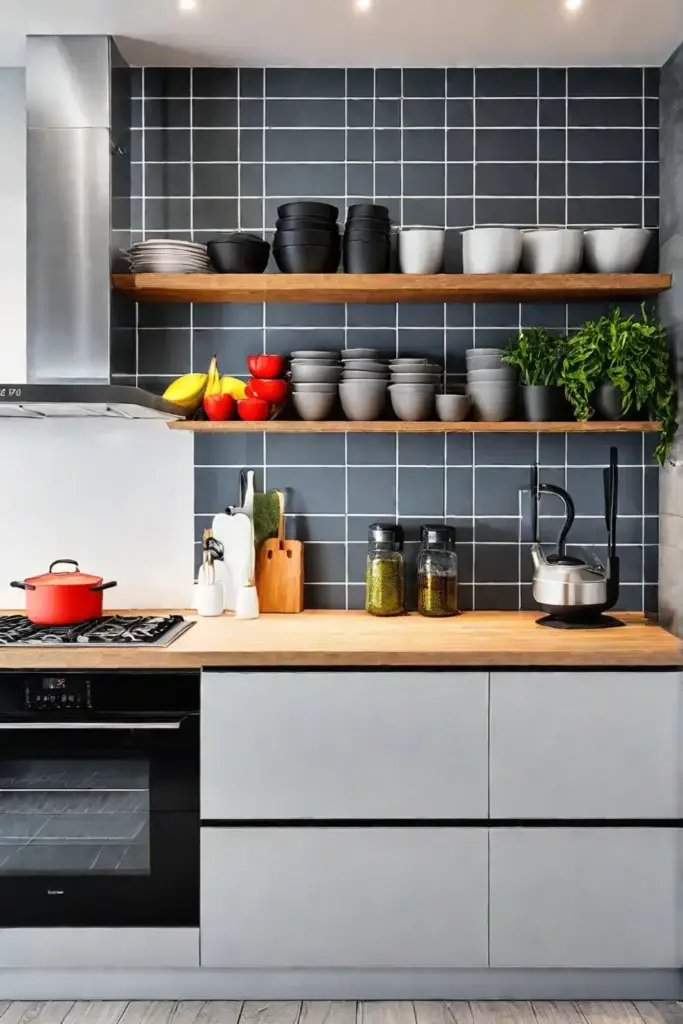
The long-term benefits of a consistently organized kitchen are both physical and mental. A clutter-free kitchen can help reduce stress and anxiety, improve productivity, and even save you time by making it easier to find what you need. It’s a win-win for both your kitchen and your well-being.
Personalization and Aesthetics
An organized kitchen isn’t just about functionality; it’s also about creating a visually appealing and personalized space. Incorporate personal touches and decor elements to make your kitchen feel like a true reflection of your style and personality.
Use open shelving to display decorative items, such as plants, vases, or artwork, and invest in stylish storage containers and organizers to enhance the overall aesthetic. Pay attention to color, lighting, and other design elements to create a cohesive and harmonious kitchen environment.
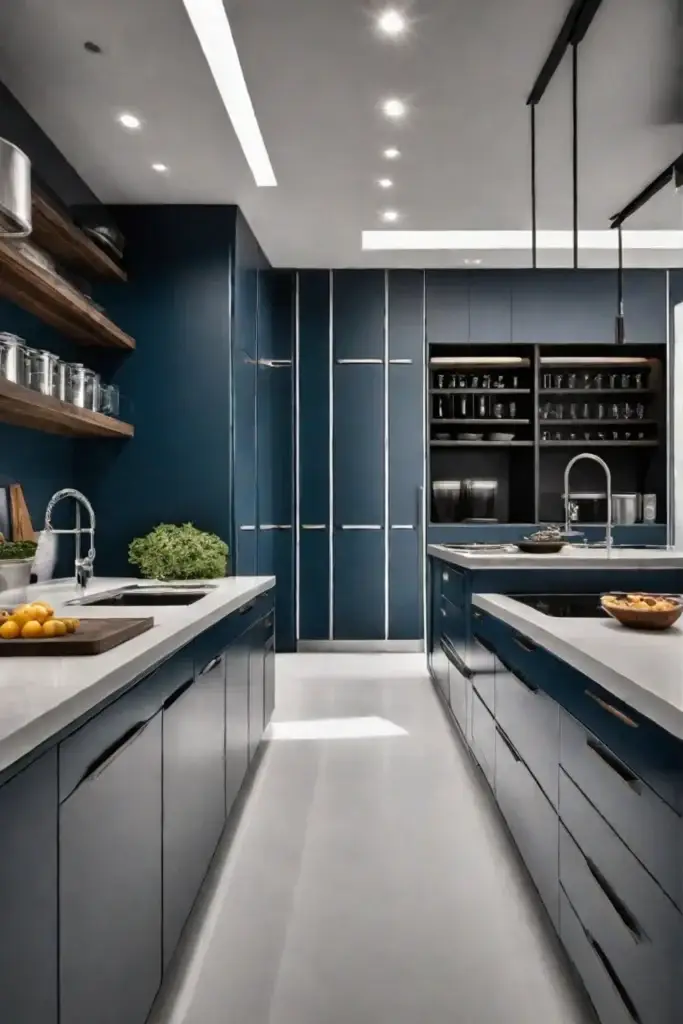
Remember, well-designed kitchens can increase the value of a home by up to 20%, and the average person spends around 37 minutes per day in the kitchen. By balancing functionality and aesthetics, you can create a kitchen that not only works efficiently but also feels like a warm and inviting space.
Sustainable and Eco-Friendly Practices
As environmental consciousness grows, it’s essential to consider sustainable and eco-friendly practices in your kitchen organization. Instead of plastic, use reusable and biodegradable storage options, such as glass or stainless-steel containers.
Implement composting and recycling systems in your kitchen to reduce food waste and minimize environmental impact. Regarding appliances and organization tools, look for energy-efficient options that align with your sustainable goals.
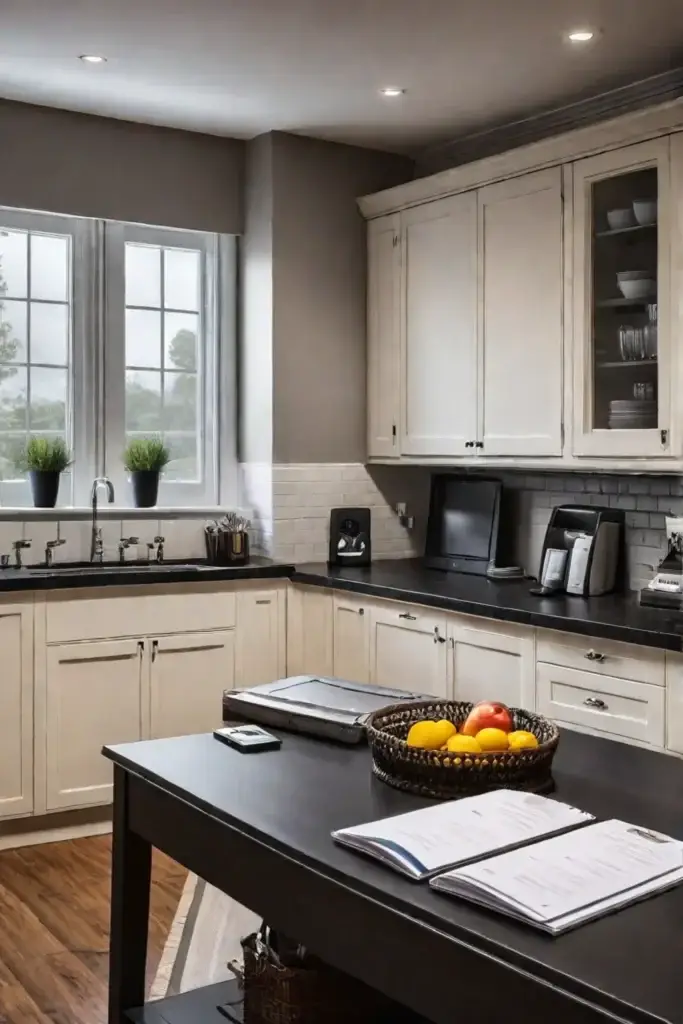
The average American household generates around 9 pounds of waste daily, with a significant portion coming from the kitchen. By adopting green solutions, you can reduce your household’s carbon footprint by up to 20%. It’s a small but impactful way to make a difference while keeping your kitchen organized and efficient.
Organizing for Special Dietary Needs
As dietary preferences and restrictions become more prevalent, it’s crucial to consider how your kitchen organization can support special nutritional needs. Whether you’re following a keto, paleo, or vegetarian diet, there are strategies to help you stay organized and avoid cross-contamination.
Designate specific areas for storing and preparing items for different dietary requirements, and use clear, labeled containers to keep everything easily identifiable. This will help you maintain your dietary regimen and ensure a safe cooking environment for anyone with food allergies or sensitivities.
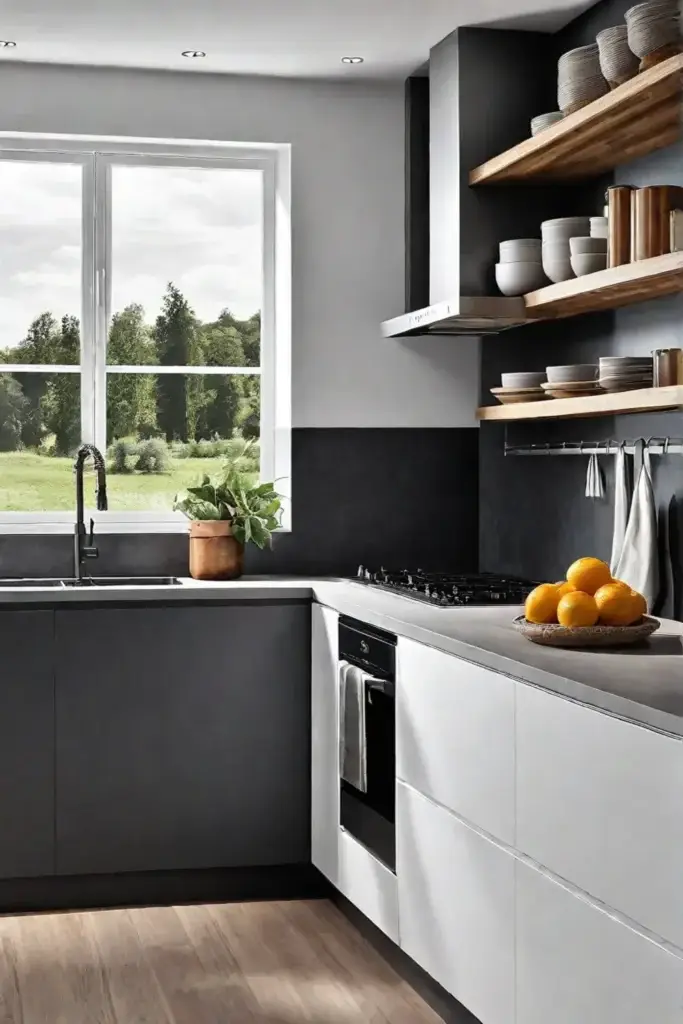
Proper kitchen organization can significantly improve the lives of those with special dietary needs. By implementing effective systems, you can reduce the risk of cross-contamination and make meal preparation a breeze, regardless of your culinary preferences.
Organizing for Entertaining and Hosting
When it’s time to entertain guests or host a gathering, a well-organized kitchen can make all the difference. Designate specific serving, storage, and cleanup areas to keep everything running smoothly and optimize your kitchen layout to facilitate efficient food preparation and presentation. Incorporate versatile, multi-purpose organization solutions to accommodate your hosting needs.
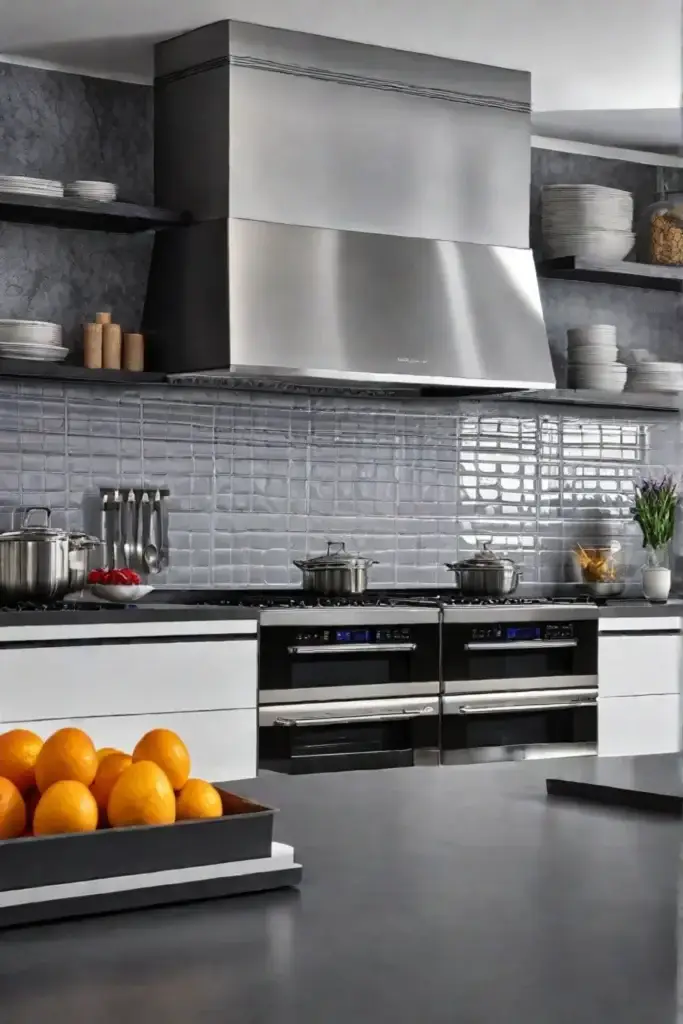
The average American household hosts around 12 gatherings annually, with the kitchen being the central hub for most of these events. Implementing strategic organization solutions can increase hosting efficiency by up to 40%, allowing you to focus on creating a memorable experience for your guests.
Conclusion
In conclusion, this comprehensive guide has provided a wealth of information on effective kitchen organization. Following the strategies and techniques outlined here, you can transform your kitchen into a well-organized, efficient, and visually appealing space that supports your daily routines, accommodates your dietary needs, and enhances your hosting capabilities.
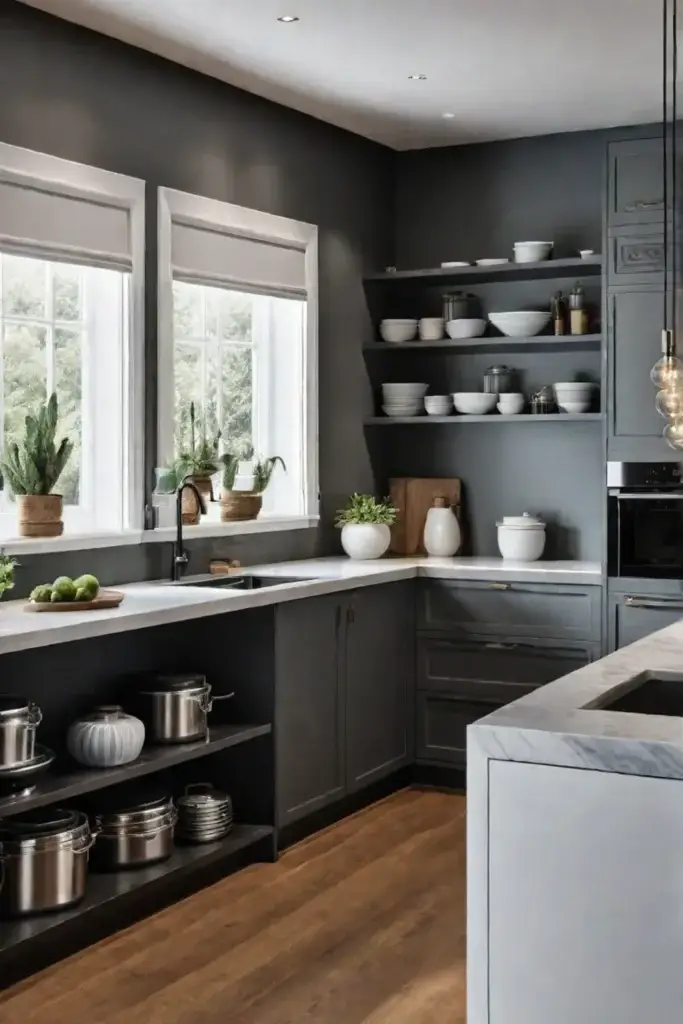
Remember, the key to a truly organized kitchen lies in decluttering, smart storage solutions, workflow optimization, and personalized aesthetic touches. Embrace these principles, and you’ll be well on your way to a kitchen that looks great and functions seamlessly.
So, what are you waiting for? Start decluttering, maximizing your storage, and streamlining your workflow today. Your kitchen and your sanity will thank you.
